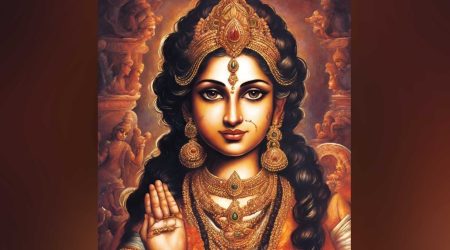By Air Vice Marshal Rajeev Hora
If my faith is undoubtedly the strongest, then why do I need to defend it?
It surely can defend itself.
I really don’t know if you have noticed that some of our matrimonial ads go like, “— Manglik girl, — God fearing, — homely girl, etc”. Essentially, you can easily spot a correlation being made between being religious and virtuous. Not only in these ads, society generally tries to make this kind of correlation for believers and non-believers as well.
Lack of belief or rather non-belief comes in many flavors and has found many common names in our lexicon. Most common being the atheists and the agnostic. Very simply put, an atheist does not believe in God. On the other hand, agnostics are on somewhat shaky ground. They do not believe it is possible to know for sure that a God exists.
Ah, then we have the agnostic atheists and even the gnostic atheists who believe with certainty that a God does not exist. Without confusing you any further, we move to the more modern, ‘spiritual but not religious’ and ‘secular’ variety. The last one having gained infamy recently in its ‘sickular’ avatar.
Talking about non-belief, I had read some emotive reflections penned down by a soldier’s wife many years back. For whatever personal reasons, she was an acclaimed atheist. Her husband had gone to war and the news from the front had not been very good. Many had died on both sides and information about the survivors was slowly coming through. The lady had a small child, six to seven years old.
However, having been brought up by devout grandparents, the child staunchly believed in his God.
The delicate contemplations were about how she was finding it immensely difficult to cope with the fear that the worst could come through. And how hope was betraying her in the absence of faith. At the same time, the child had no such issues to deal with. He played and slept peacefully through the days of ordeal. He had no doubts about his father’s return. After all, he had his God to comfort him.
Similar is the story about a village in famine. The whole village turned up at the temple to pray for rain. However, it was only a little boy who reached there with an umbrella. When admonished about the futility about his action, he replied, “I didn’t want to get wet on my way back.” It was shockingly evident to all that while they came with hope, it was only the little one who carried his faith with him.
Likewise, transient indeed is the journey of existence for all of us. During this passage, it is our personal faiths which keep our doubts, fears and other equivalents of pessimism at bay. Inherited at birth and inducted during childhood, we steadfastly hold on to them. The thought of making a different choice rarely enters our being.
Seeking affiliations in proximity, we dissociate and distance ourselves in life from those with a perceived differential. Surprisingly, in death, we are on more common grounds with a sobering reminder of our mortality. And also, most faiths promising an existence beyond and more to follow.
A well-known phrase from the burial service in the Christian ‘Book of Common Prayer’ is: ‘we therefore commit this body to the ground, earth to earth, ashes to ashes, dust to dust; in sure and certain hope of the Resurrection to eternal life.’
The Islamic faith also has a strong belief in a kind of afterlife. It is believed that the conduct in present life dictates the reward of an entry into paradise on the Day of Judgement. The conviction is that all human beings who have ever lived will be held accountable for their deeds by being judged by God. The world will end on that day and the dead will experience either eternal peace in heaven or eternal suffering in hell.
Incidentally, the concept of resurrection in Christianity also talks about a similar Day of Judgement. The belief is that our sacred bodies are part of what we are and that we are separated from them at death. But a reunification with our bodies or resurrection will take place on the D-Day so that we are not ‘unclothed’. This actually leads to the ritual of burial in Christianity rather than cremation after death.
Lastly coming to the Hindu philosophy of rebirth or reincarnation.
In Hinduism, the belief is that a single eternal soul is reborn multiple times in different physical forms. Our karma or actions in this birth dictate what form our soul will take in the next life. Eventually, the soul will get enlightened and achieve perfection. At this point, the soul will achieve moksha and be freed from Samsara, the cycle of birth, death and rebirth.
The idea of rebirth indicates starting life anew without blemish whereas resurrection revolves around having another chance to live with the same body. Slight differences surely in our afterlives. However, the common strain for the present one in all faiths fundamentally appears to be of goodness and virtue. And yet the cacophony today through parochial interpretations is to claim that my faith is undoubtedly the strongest.
If indeed it be so, then why do I need to defend it? It surely can defend itself. It is certainly not making a damn difference to my present. Then is it the hope that it may ensure a better life in my afterlife? Some hope! Anyway, notwithstanding which route of reincarnation or resurrection we get to follow, I have only this sincere prayer for my unusually excited friends:
“Next time, you be born in a family practicing a faith you despise today!”
Postscript: What fun it will be to watch the ‘defenders of the faith’ batting for the opposing team!
Atheism versus religion
The comparison between atheism and religion is complex and multifaceted, encompassing various philosophical, psychological, and sociocultural dimensions.
It’s essential to recognize that atheism and religion are not necessarily mutually exclusive, as some religious traditions incorporate atheistic or non-theistic elements, and some atheists may adopt spiritual or philosophical practices without subscribing to belief in a deity. Additionally, individuals within both groups may hold diverse beliefs, attitudes, and interpretations, leading to a wide range of perspectives on existential questions and moral issues.
———————————

Air Vice Marshal Rajeev Hora superannuated from the Indian Air Force after 37 years of service. He is an accomplished aviator and test-pilot with extensive operational experience. Blog: seekmediation.com
Disclaimer: The views expressed are not necessarily those of The South Asian Times










